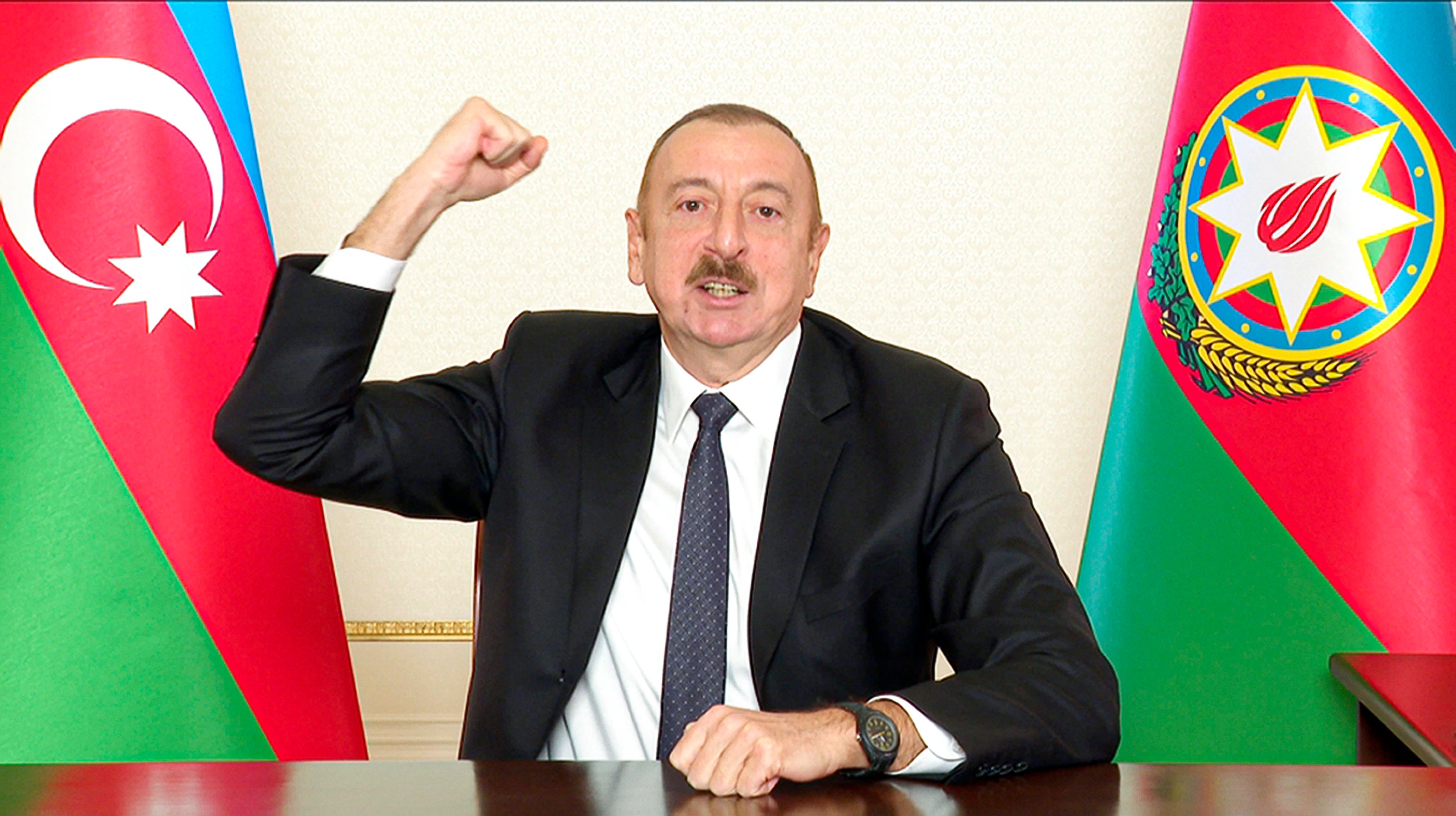Azerbaijani leader vows to revive region ceded by Armenia
Azerbaijan’s president has vowed to rebuild and revive the Kalbajar region, which Armenian forces ceded in a truce that ended six weeks of intense fighting over Nagorno-Karabakh

Azerbaijan's president vowed Wednesday to rebuild and revive the Kalbajar region, the latest territory that Armenian forces have ceded in a truce that ended six weeks of intense fighting over Nagorno-Karabakh
“We will restore Kalbajar, let no one have doubts about that, and life will return there,” President Ilham Aliyev said in an address to the nation soon after Azerbaijani troops entered the region.
“I gave an order to prepare a general layout of the reconstruction of the town, and not just the town of Kalbajar, but of all of the towns" in the region, also known as Kalbajar.
Nagorno-Karabakh lies within Azerbaijan but has been under the control of ethnic Armenian forces backed by Armenia since a separatist war there ended in 1994. That war left not only Nagorno-Karabakh itself but substantial surrounding territory in Armenian hands.
Heavy fighting broke out on Sept. 27 and marked the biggest escalation of the decades-old conflict between the two ex-Soviet nations in over a quarter-century, killing hundreds and possibly thousands of people.
A truce brokered by Russia two weeks ago halted the violence after several failed attempts to establish a lasting cease-fire. The agreement stipulated that Armenia hand over control to Azerbaijan of some areas it holds outside Nagorno-Karabakh’s borders.
The first one, Aghdam, was turned over last week. Kalbajar was expected to be handed over on Nov. 15, but Azerbaijan agreed to delay the takeover after a request from Armenia. Azerbaijani officials said worsening weather conditions made the withdrawal of Armenian forces and civilians difficult along the single road through mountainous territory that connects the region with Armenia.
During the fighting, Azerbaijani forces have also recaptured significant swaths of land south of Nagorno-Karabakh, including the towns of Jabrayil and Fizuli and areas around them. Aliyev on Wendesday denounced Armenians for destroying those towns and promised to rebuild them.
“We will hold the enemy accountable... When I visited the city of Aghdam, I didn't find a single standing building, and neither in Fizuli or Jabrayil. They destroyed everything," Aliyev said. “We will revive these cities and regions again. We have big plans to rebuild these areas.”
The truce was celebrated as a victory in Azerbaijan, but sparked mass protests in Armenia, with thousands taking to the streets to demand the ouster of the country’s prime minister.
Ahead of the handover, some ethnic Armenians leaving Kalbajar set their houses on fire in a bitter farewell. The gesture insulted Azerbaijanis, who used to live in Kalbajar and fled as it fell under Armenian control in early 1990s.
“What is happening in Kalbajar is vandalism. Not just our houses, but schools, culture centers, other civilian objects are being burned that (Armenians) did not build, forests, even the cattle,” Velyeddin Ismayilov told The Associated Press.
The 77-year-old says he fled Kalbajar with his wife and three young children when the Armenians arrived, and his big house is now ruined. But he is prepared to return and restore the town and build a new house for his family.
“There is no greater happiness than to live in your hometown. I and my entire family are ready to head there right now, to live in a tent there, while slowly restoring my native Kalbajar. With my grown-up children, grandchildren we will build an even better house,” Ismayilov said.
Bookmark popover
Removed from bookmarks